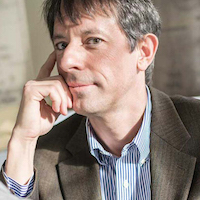Code 8.7: Using Computational Science and AI to End Modern Slavery
February 19-20, 2019
United Nations, New York
United Nations Headquarters, New York, NY, USA
Event Contact
Ann Drobnis
adrobnis@cra.org
Event Type
Event Category
Tags
cybercrime, human trafficking, sex trafficking, sociotechnical security

The Computing Community Consortium is cohosting Code 8.7 with the United Nations University Centre for Policy Research, The Alan Turing Institute, Tech Against Trafficking, University of Nottingham Rights Lab, and Arizona State University Global Security Initiative.
Code 8.7 is a two-day conference that brings the computational research and artificial intelligence (AI) communities together with those working to achieve Target 8.7 of the Sustainable Development Goals. With Target 8.7, 193 countries agreed to take immediate and effective measures to end forced labour, modern slavery and human trafficking by 2030, and the worst forms of child labour by 2025. Computational science, AI and machine learning can accelerate our understanding of these problems and help us determine “effective measures” to address them.
Code 8.7 will use innovative sessions to develop “technology pipelines” providing deployable tools and techniques grounded in the real experiences of anti-slavery actors.
The conference will combine policy and practical problem-solving sessions, including:
- Opportunity showcases with presentations on emerging uses of computational science and AI to address modern slavery;
- Mini-hothouses to brainstorm joint problem-solving approaches; and
- Plenary and panel discussions.
Code 8.7 will help:
- Strengthen the computational science and AI communities’ understanding of modern slavery, forced labour and human trafficking, and what works in addressing these problems;
- Increase the understanding and use of computational science and AI by actors involved in fighting modern slavery and other forms of Target 8.7 exploitation;
- Identify actual or latent demand for AI and computational science techniques and resources from the anti-slavery community, and begin to match data-holders with computational science and AI partners; and
- Start a discussion about how to provide the infrastructure for an ongoing, structured and truly global conversation between these communities that will allow them to strengthen joint problem solving and better use computational science and AI to end modern slavery.
Computational science, data science, AI and machine learning practitioners, and all those interested in fighting forced labour, modern slavery, human trafficking and child labour are welcome to attend.
You can find CCC slides and videos of the entire conference under the resources tab.

This conference is cohosted with the United Nations University Centre for Policy Research, The Alan Turing Institute, Tech Against Trafficking, University of Nottingham Rights Lab, and Arizona State University Global Security Initiative.
CCC Leads:
Nadya Bliss, Arizona State University |
Daniel Lopresti, Lehigh University |
Keith Marzullo, University of Maryland |
Session Summaries:
- How We Can Advance Collaborative Problem Solving by the Code 8.7 organizing committee
- Towards a Pipeline – Technology, Techniques and Training by Nadya Bliss
- Creating Incentives for Action – Research, Regulation and Rewards by James Cockayne
- Mining Government Data to Reach Target 8.7 by Davina Durgana
- Vulnerability Mapping and Modelling by Todd Landman
- Using ICT to Find Hidden Populations by Zoe Trodd
Slides that CCC Council Members presented at the conference:
- Dan Lopresti – “Creating Incentives for Action: Developing a Shared Research Agenda“
Watch the videos of the Code 8.7 Conference at the links below:
- Day 1: https://www.facebook.com/pg/Delta87org/videos/?ref=page_internal
- Day 2 AM: http://webtv.un.org/search/part-1-code-8.7-using-computational-research-and-artificial-intelligence-to-end-modern-slavery/6004908730001/?term=code%208.7&sort=date
- Day 2 PM: http://webtv.un.org/search/part-2-code-8.7-using-computational-research-and-artificial-intelligence-to-end-modern-slavery/6004936856001/?term=code%208.7&sort=date






